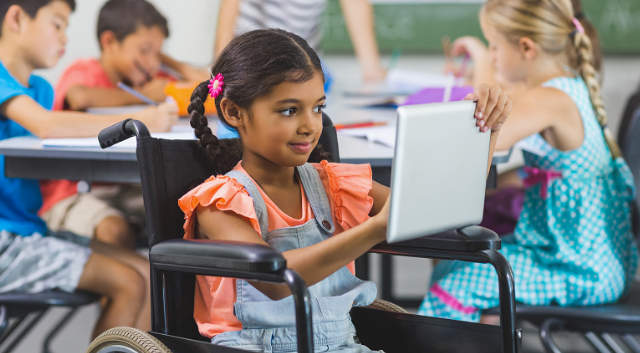Tackling Learning Disabilities Head-On (GS Paper 2, Social Justice)

Context
- To create an inclusive education system, we must address learning disabilities with understanding, empathy, and evidence-based interventions, ensuring that no child is left behind.
Introduction
- Imagine a classroom where a student struggles to articulate their thoughts.
- As they hesitate, the teacher moves on, unintentionally silencing a voice and stunting the student's intellectual growth.
- This scenario underscores a deeper truth: learning disabilities are multifaceted challenges that affect not just communication, but how students think and engage with the world.
A Deeper Truth
Nature of the Struggle
- Learning disabilities extend beyond issues with reading or writing; they influence cognitive processes, impacting understanding and engagement.
- Approximately 8-15% of schoolchildren in India—around 50 million—are reported to have some form of learning disability.
- The Rights of Persons with Disabilities Act, 2016 recognizes 'specific learning disabilities,' yet many schools lack the infrastructure and training to support these students.
Case Studies
- Dyslexia: This condition involves unique language processing, affecting reading, comprehension, and social interactions.
- ADHD: Often mischaracterized as mere restlessness, ADHD is a complex disorder that impacts attention and impulse control.
The current education system, primarily designed for neurotypical students, often fails to accommodate diverse learning needs. Teacher preparedness is lacking, especially in rural areas, where many educators are untrained in inclusive teaching methods. The COVID-19 pandemic exacerbated this, as many teachers were unprepared to support students with learning disabilities in online settings.
Exceptional Cases and Internalized Failure
- While stories like Radhika's—who achieved 97% in her CBSE exams despite multiple learning disabilities—are inspiring, they remain exceptional.
- Many students face internalized failure, believing themselves to be “lazy” or “stupid” when, in reality, their brains function differently.
- Without proper support, they risk never realizing their true potential. Moreover, children with learning disabilities face higher rates of anxiety and depression, often battling these mental health issues silently.
Positive Steps Forward
- The government's initiative to implement diagnostic tests for adult learning disabilities marks a positive development.
- However, substantial change hinges on effectively training teachers.
- B.Ed programs must focus on neurodiversity and adaptive teaching methods, aligning with the standards set by the National Education Policy (NEP) 2020.
The Way Forward: Tackling Learning Disabilities in India
- Comprehensive Early Identification Programs: Emphasize early detection and intervention using tailored screening tools. Countries like Finland exemplify effective early support systems, though India's unique challenges necessitate localized approaches.
- Promising Initiatives: Steps like the establishment of 22 Cross-Disability Early Intervention Centres (CDEIC) and Kerala’s early intervention initiatives demonstrate potential pathways for broader support systems.
- Role of Technology: Digital tools, including text-to-speech software and AI-powered aids, can enhance learning for students with disabilities. Initiatives under the Digital India framework, such as PM e-Vidya and DIKSHA, aim to unify educational resources, but access must be prioritized.
- Cultural Shift: Changing societal perceptions of learning disabilities is crucial. Public awareness campaigns and films like Taare Zameen Par can help, but understanding must begin within families.
- Parental Involvement: Parents are pivotal in recognizing early signs of learning disabilities and advocating for their children's needs. Educating them about available resources can empower families to navigate support systems effectively.
- Motivating Teachers: Incentives for teachers to pursue specialized training in neurodiversity—such as financial rewards and career advancement—can encourage the adoption of adaptive teaching methods.
- Collaborative Efforts: A concerted effort involving government bodies, NGOs, and private institutions is essential to transform policies into actionable solutions that effectively support students with learning disabilities.
Conclusion
- The complexity of learning disabilities demands a nuanced response.
- By fostering understanding, empathy, and evidence-based interventions, we can build an education system that truly supports every child.
- This effort is not just about fairness; it is about unlocking the potential of millions of young minds who think differently.
- As India stands on the brink of becoming a global superpower, the time to act is now. Our children are counting on us.


